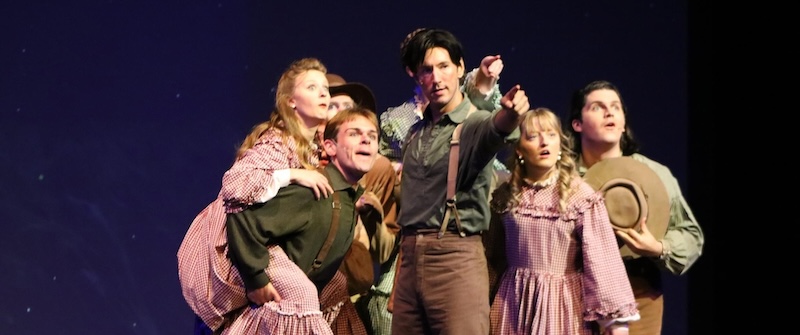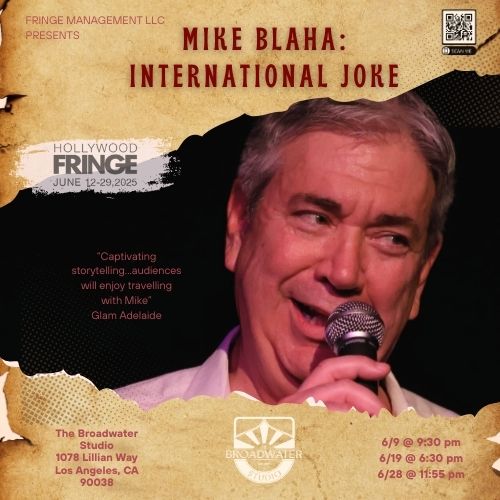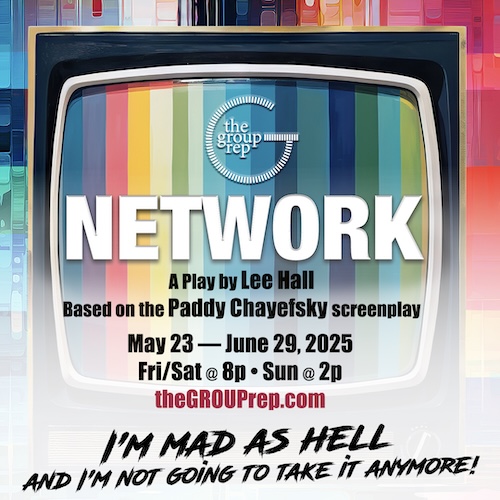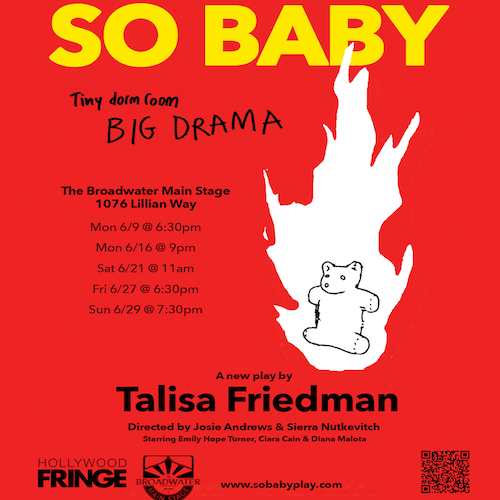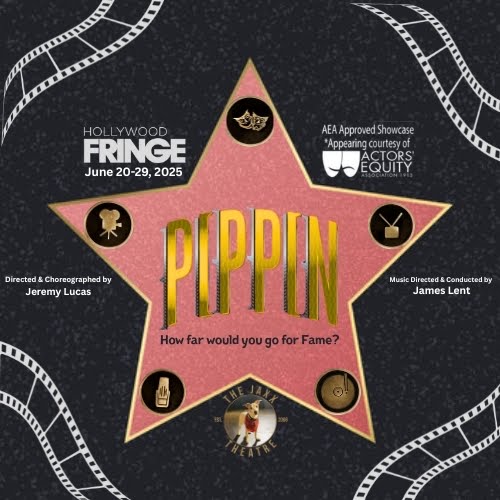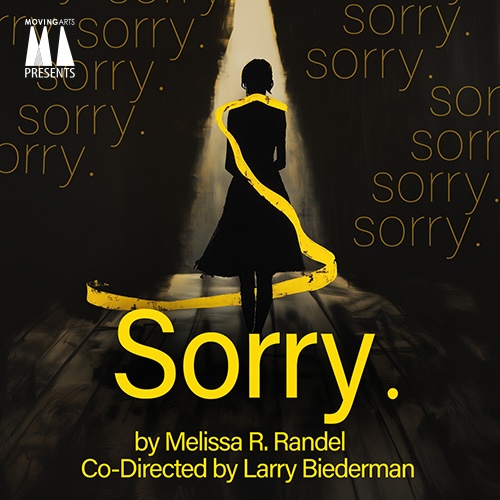Garrett Deagan, Emma Beck, Maxwell Oliver, Madlyn Wurth, Michael Shald (Photo by Gus Gordon)
Reviewed by Martín Hernández
The Colony Theatre
Through July 14
This musical paean to Abraham and Mary Todd Lincoln, with book, music, lyrics, and direction by Terrence Cranert, hews to hagiography, perpetuating the mythology of the USA’s 16th president and First Lady with a by-the-book rendering of their early lives, courtship, and marriage. Unfortunately, there is little tension, nuance, or conflict between them to pique interest in their relationship. Meanwhile, the work’s racial and gender dynamics are naïve at best, retrograde at worst. While clearly a labor of love, this veneration for Abe and Mary thwarts the production’s dramatic potential in favor of patriotic hype.
A robust group of Black gospel singers (Lacy Mason, Michal Dawson Connor, Linda Broadous Miles, Mario Tate, and Jacquelyn Levy) open the show with a rousing rendition of “Freedom” in which they implore the country’s new leader, Lincoln, to “set my people free.” Remaining on stage when the tune is over is Elizabeth Keckley (Mason, who delivers a powerhouse solo in the show opener), a former slave who became Mrs. Lincoln’s in-house dressmaker and White House confidante. She serves as a quasi-narrator, an understandable choice as she wrote a memoir of her White House years in 1868, portions of which appear in Cranert’s script.
In 1833, 14-year-old Mary Todd (Catherine Oregon), the daughter of a Kentucky slaveowner, journeys to a finishing school in Lexington accompanied by her slave caretaker, Mammy Sally (Miles). Gone With The Wind vibes ensue with their playful banter despite Sally being Mary’s property. The two commiserate over Mary’s desire to be married to a U.S. president and Sally’s wish for freedom in in the duet, “Dream, Hope, Pray.”
Abe (Garrett Deagon), a self-educated farmer’s son in 1830s Illinois, explains his wanderlust to his family in “Over Yonder,” a tender tune from the talented Deagon. By 1837, Abe has settled in Springfield, Illinois, where he and John Stuart (Bobby Kelly) are successful law partners. When Stuart offers to introduce Abe to his cousin, the now adult Mary (Samantha Craton), the gangly lawyer demurs in the “Two-Legged Dear,” an ode to bachelorhood proffering derogatory lyrics about Indigenous people and women.
The future First Couple do hook up in 1839, and while most of her social circle sees Abe as awkward and bound for poverty, Mary sees him as a “Diamond In The Rough,” a lovely song displaying Craton’s vivid vocal range. Both use typical rom-com tropes – Mary’s crocodile tears, Abe’s fake brooding – to salvage their on-again off-again courtship, resulting in an impromptu wedding and Mary serving as the catalyst for Abe’s political successes.
Keckley returns in Act Two, setting the stage for the White House years. “On The Stump” has presidential candidate Abe receiving advice from a press corps that reminds one of today’s cable news pundits. Once elected, he is mired by the Civil War. A Marx Brothers-like ditty, “Someone Who’s As Good As General Lee,” has Abe and several of his cabinet members (Mark Haan, Maxwell Oliver, Michael Reese Shald) and, incongruously, Lincoln’s Black valet (Connor), lament the lackluster talents of the country’s generals. Connor mesmerizes us later with his solo part as a Black solder in Bind Up The Nation’s Wounds, a requiem for the fallen president that is bolstered by the ensemble.
Deagon’s Abe and Craton’s Mary exude a credible chemistry, while the other cast members — bolstered by Craton’s intricate staging and Steven Applegate’s musical direction — acquit themselves well with stunning vocal work, most notably that of the gospel choir. Maria Del Bagno’s adroit choreography enhances ballroom and hoedown dancing sequences alike, while Jonathan Alexander Cranert’s screen projections help us navigate the locales of various locales.
While Cranert checks off the Lincolns’ traditional bio boxes – the Gettysburg Address, the tragic deaths of two of their four sons, their kindness to individual Black people, the assassination – he also does not counter the propagandist narrative of the so-called “Great Emancipator.” Here was a president who authorized the mass hanging of thirty-eight members of the Dakota tribe in Minnesota after what many now believe were racially biased trials. Even days before his murder, Lincoln continued to support the deportation of Black people from the U.S.A. A more honest portrait of “Honest Abe” could go far to bind up the nation’s wounds still festering from the Civil War.
The Colony Theatre, 555 N. Third St., Burbank; Fri.-Sun., 7:30 pm, Sat.-Sun., 2 pm, thru July 14.; https://www.thelincolnsofspringfield.org/ Running time: two hours and 10 minutes with an intermission.


